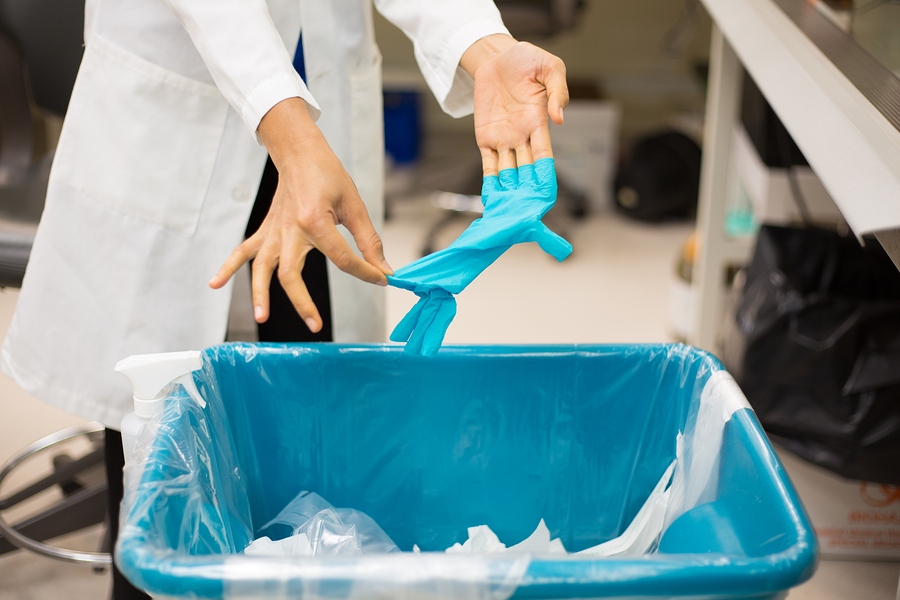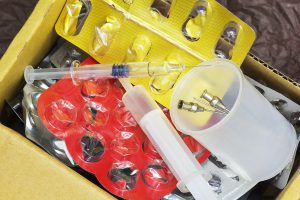The Dos and Don’ts of Medical Waste Disposal

 According to the U.S. Environmental Protection Agency (EPA), medical waste disposal is a subset of waste disposal generated in healthcare facilities—including hospitals, physician’s offices, dental practices, blood banks, and veterinary hospitals/clinics. Even medical research and laboratories produce medical waste.
According to the U.S. Environmental Protection Agency (EPA), medical waste disposal is a subset of waste disposal generated in healthcare facilities—including hospitals, physician’s offices, dental practices, blood banks, and veterinary hospitals/clinics. Even medical research and laboratories produce medical waste.
Although the average individual will not come into contact with this form of waste, healthcare facilities need to follow proper safety precautions when disposing of medical waste to protect our environment and individual health from being affected. Below are the top 5 do’s and don’ts of medical waste management so your facility keeps in compliance.
What Are the Top Five DON’TS of Medical Waste Management?
Although there are several regulations on disposing of medical waste, five top the list for the improper handling of medical waste:
- DON’T move your medical waste – If your facility moves locations, don’t take your medical waste with you. Ensure a properly permitted medical waste hauler receives your waste for transport.
- DON’T put aerosols, alcohol, or chemicals into medical waste – Make sure to seek expert guidance on disposal of any chemicals you may have collected, no matter how small the volume.
- DON’T place pharmaceuticals in medical waste – The best practice is to dispose of pharmaceuticals in special pharmaceutical waste containers. Regulations also dictate how to dispose of these pharmaceuticals properly.
- DON’T leave waste containers open or empty waste containers unsealed – Full waste containers can topple and spill their potentially infectious content.
- DON’T ignore required training for handling medical waste – The Occupational Safety and Health Administration (OSHA) requires documented annual training on bloodborne pathogens for anyone who may be at risk of exposure to disease-causing germs present in medical waste.
What Are the Top Five DO’S of Medical Waste Management?
- DO segregate waste properly: Separate different types of medical waste at the point of generation. This includes sharps, infectious waste, hazardous chemicals, pharmaceutical waste, and non-hazardous waste. Proper segregation ensures that you handle and dispose of each type of waste appropriately.
- DO use safe handling practices: Train healthcare staff on safe handling procedures for medical waste. This includes using personal protective equipment (PPE) such as gloves and masks, as well as following protocols for containment, transport, and storage to minimize the risk of exposure to hazardous materials.
- DO implement secure storage: Store medical waste in designated containers that are leak-proof, puncture-resistant, and properly labeled. Secure storage areas should be inaccessible to unauthorized individuals and equipped with features such as locking mechanisms and tamper-evident seals.
- DO comply with regulations: Stay up-to-date with local, national, and international regulations governing medical waste management. Compliance with regulatory requirements helps ensure that you handle, transport, and dispose of waste by environmental and public health standards.
- DO employ safe disposal methods: Choose appropriate disposal methods based on the type of medical waste and local regulations. This may include autoclaving, incineration, chemical treatment, or other approved techniques. Properly treated medical waste should be rendered non-infectious and safe for final disposal in landfills or recycling facilities.
Effectively Manage Your Medical Waste With Medical Waste Pros Today
Medical Waste Pros can help you find a compliant regulated medical waste disposal company right in your area. We’ll help you select the containers, schedule, and system that works best for your organization. To get free quotes on regulated waste disposal, fill out the form, or give us a call at (888) 755-6370.










